BCN remembers GM Daniel Yanofsky OC QC (25-iii-1925 05-iii-2000)
From The Encyclopedia of Chess (Robert Hale, 1970 & 1976)by Anne Sunnucks:
YANOFSKY, Daniel Abraham (1925- )
International Grandmaster (1964), Canadian Champion in 1941, 1943, 1945, 1947,1953, 1959, 1963 and 1965, British Champion in 1953. Abe Yanofsky, was born in Brody, Poland, on 26th March 1925. His parents were Russian and had left their native country a few months earlier on their way to Canada, to which they were emigrating. They eventually arrived at their destination when Yanofsky was 8 months old.
When he was 8 Yanofsky saw a chess set in a shop window and persuaded his father to teach him the game. He joined Winnipeg Jewish Chess Club and when he was 11 his obvious talent was noticed by Bernard Freedman, Treasurer of the Canadian Chess Federation, who was visiting Winnipeg. Freedman was responsible for Yanofsky playing in his first tournament a few months later in Toronto. Yanofsky arrived in Toronto determined to get as much chess as possible and put his name down for three tournaments: the Junior Boys’ Championship, which was to be played in the morning; the Senior Boys’ Championship, which was to be played in the afternoon; and the Major Championship, which was to be played in the evening. He withdrew from the Junior Boys’ Championship after 1 round at the request of the organisers, who realised that he was far too strong for that event, and went on to win both the other events.
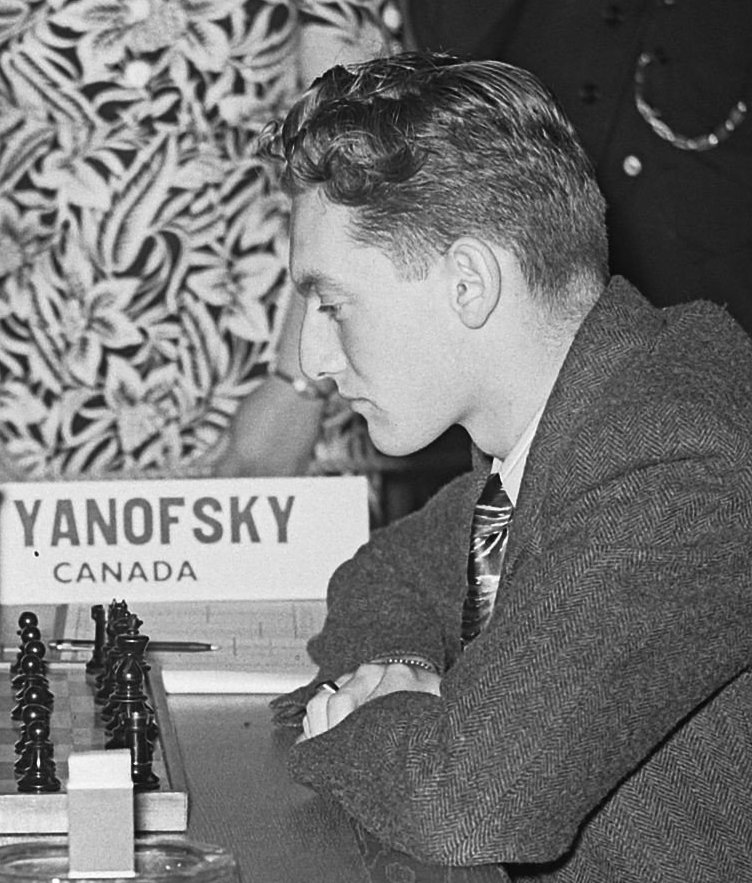
This was the first of a number of successes which to his selection as a member of the Canadian team to play in the Chess Olympiad at Buenos Aires in 1939, where on 2nd board he scored 84.4 per cent and attracted the notice of the World Champion, Alekhine, who spent many hours going over Yanofsky’s games with him.
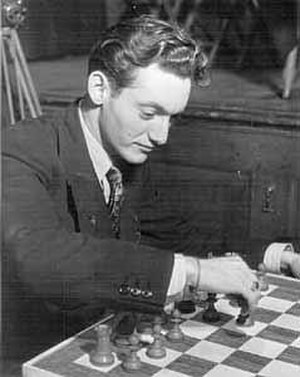
On his return to Canada Yanofsky had to divide his time between earning a living, completing his education and playing chess. Before joining the Royal Canadian Naval Volunteer Reserve in 1945, Yanofsky graduated from the University of Manitoba with a Bachelor of Science degree, and, apart from his victories in the Canadian Championship, won lst prize at Ventnor City 1942 and the United States Open Championship the same year.
After his discharge from the Navy Yanofsky played at Groningen 1946 and came 14th out of 20. However his score included a win against Botvinnik and a 50 per cent score against the five top Russian players. After Groningen he ‘played in Switzerland, Spain, England, Denmark and Iceland before returning to Canada. His main successes were 2nd
at Barcelona 1946; lst at Reykjavik 1947 and 2nd at Copenhagen 1947.
Back in Canada, Yanofsky enrolled at Manitoba Law School and played little chess until he had graduated in 1951, having won the University Gold Medal in Law and five scholarships. He decided to do a post-graduate course in Law at Oxford University and left for England later that year. In 1952 he was awarded the Viscount Bennett Scholarship as the most outstanding law student in Canada by the Canadian Bar Association.
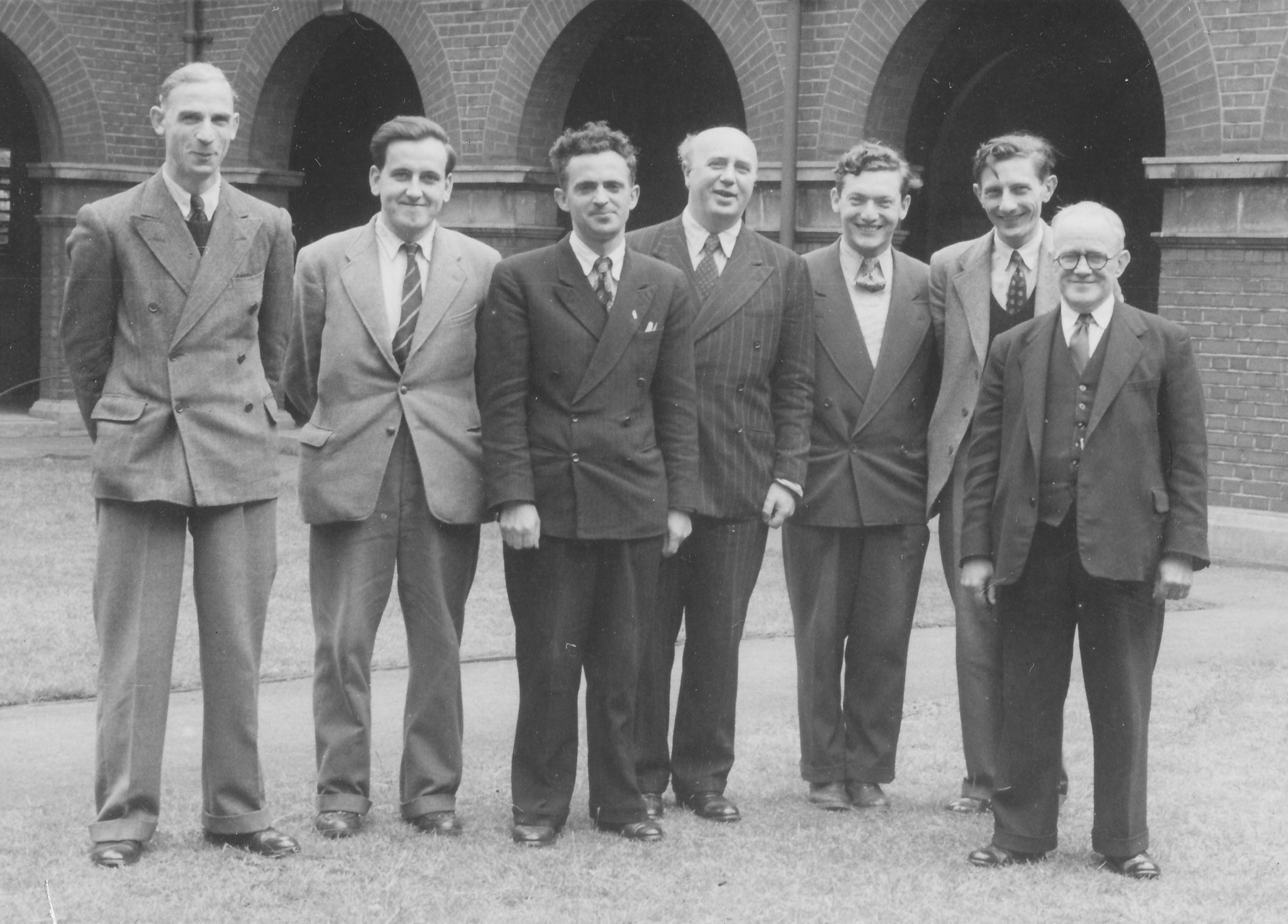
While in England Yanofsky added to his chess reputation by winning the British Championship in 1953 and tying for 1st prize at Hastings in the same year.
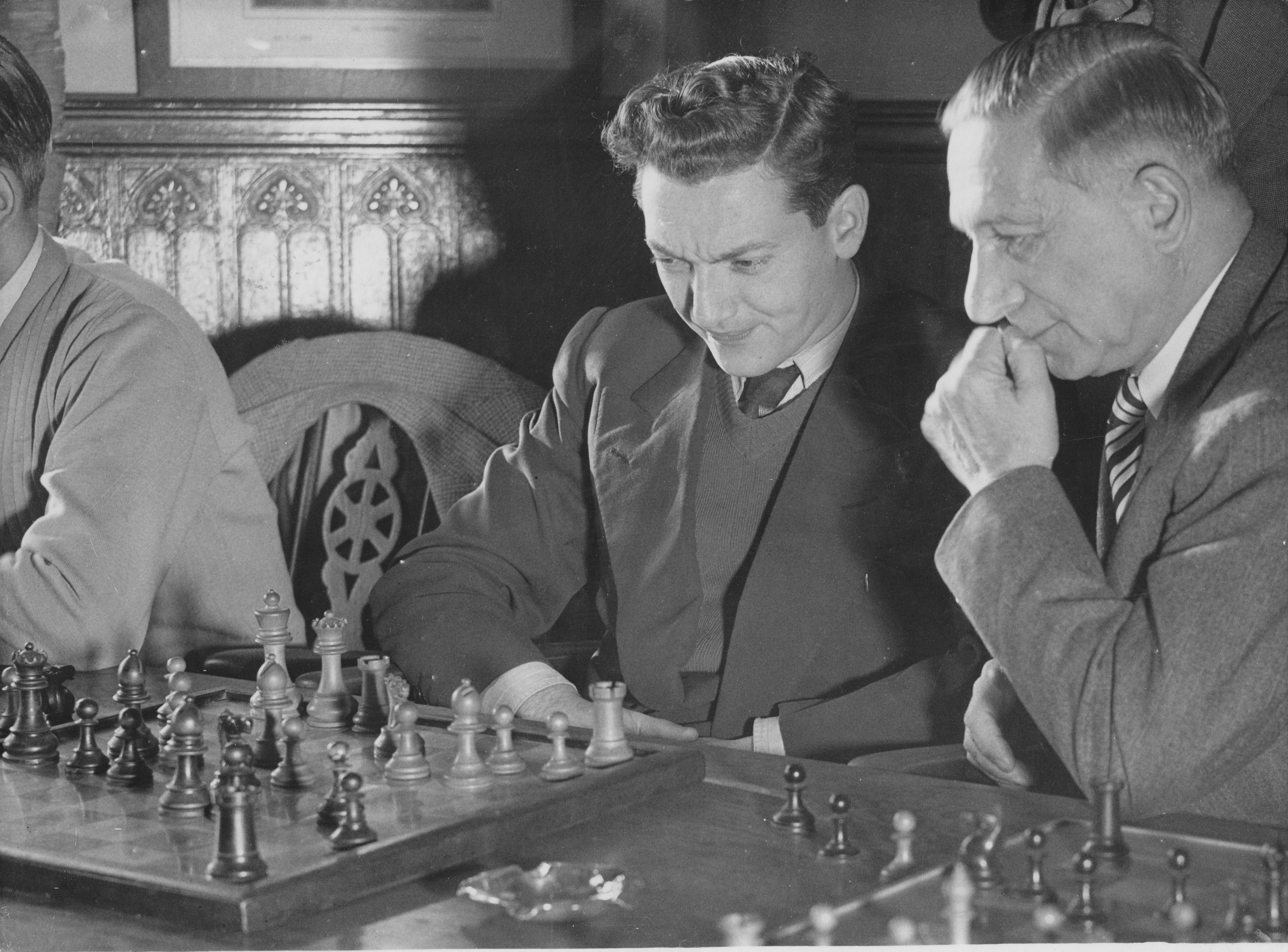
Since then he has played regularly for Canada in Chess Olympiads since 1954.
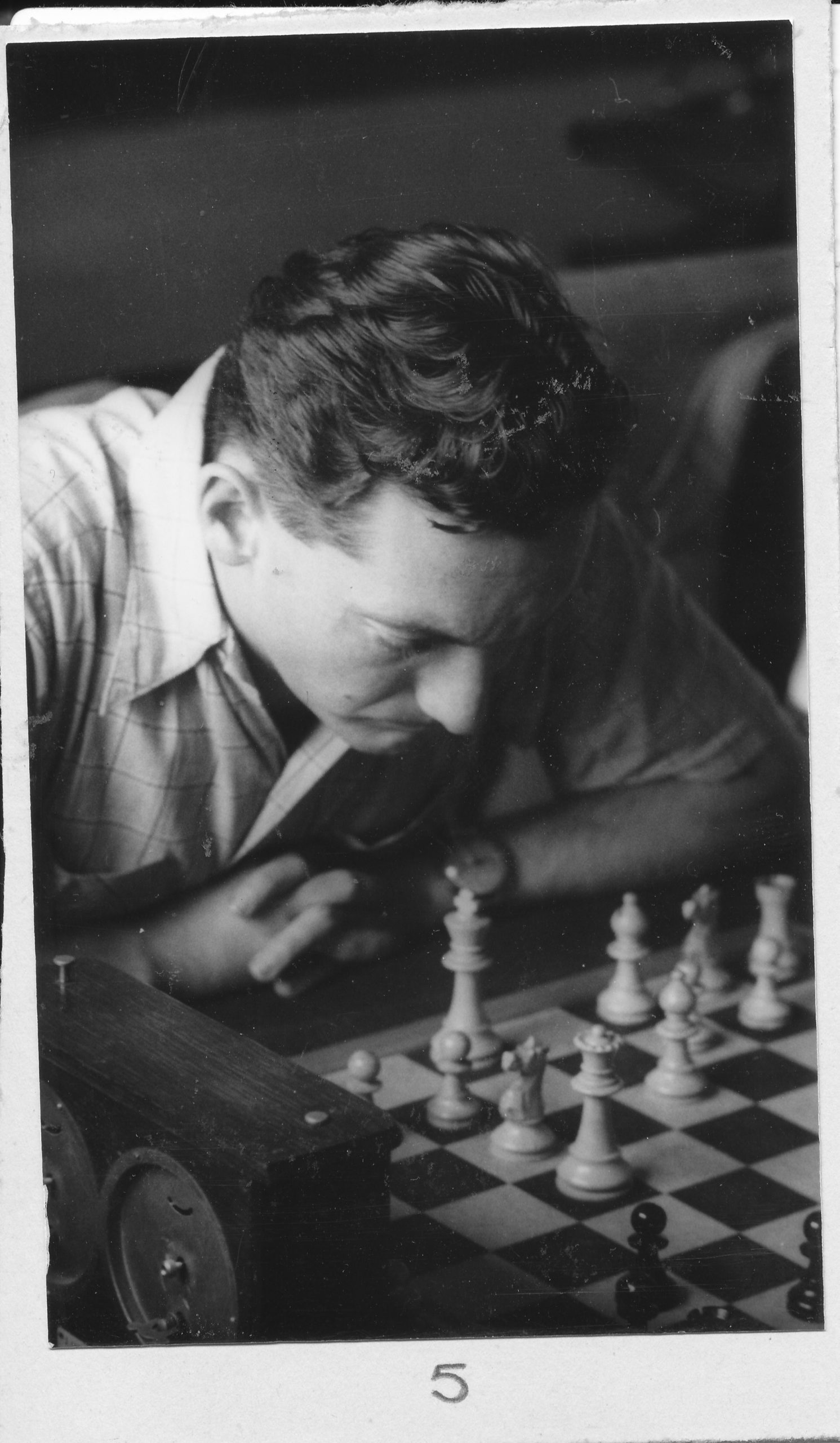
From The Oxford Companion to Chess (OUP, 1984) by Hooper and Whyld:
YANOFSKY, DANIEL ABRAHAM (1925- ), Canadian player. International Grandmaster (1964), international Arbiter (1977). He was born in Poland of Russian parents who took him to Canada when he was eight months old; his childhood was spent in Winnipeg where he learned the moves of the game when he was 8 and improved so rapidly that at the age of 14 he was selected to
represent Canada in the Buenos Aires Olympiad 1939; In this event he made the highest percentage score at second board (+12=3 — 1), In 1941 he came equal first with H. Steiner in the US Open Championship, won the title on tie break, and also won the Canadian Championship (for the first of eight times). After the Second World War Yanofsky played in several tournaments including the Saltsjöbaden interzonal 1948, in which he shared eleventh place.
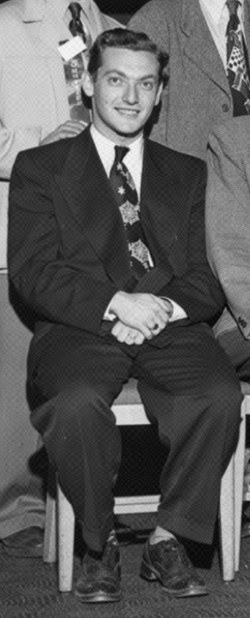
He then began law studies, completing them so brilliantly that he was offered five scholarships for postgraduate work. He chose Oxford, While in England he won, with case, the British Championship 1953, Returning to Winnipeg he became a successful lawyer active in civic politics. His chess career took second place although he found time to play in several tournaments and in many Olympiads from 1954. Yanofsky wrote of his early life in Chess the Hard Way! (1953); he excelled in the endgame and there are many examples in this book of his prowess in this phase.
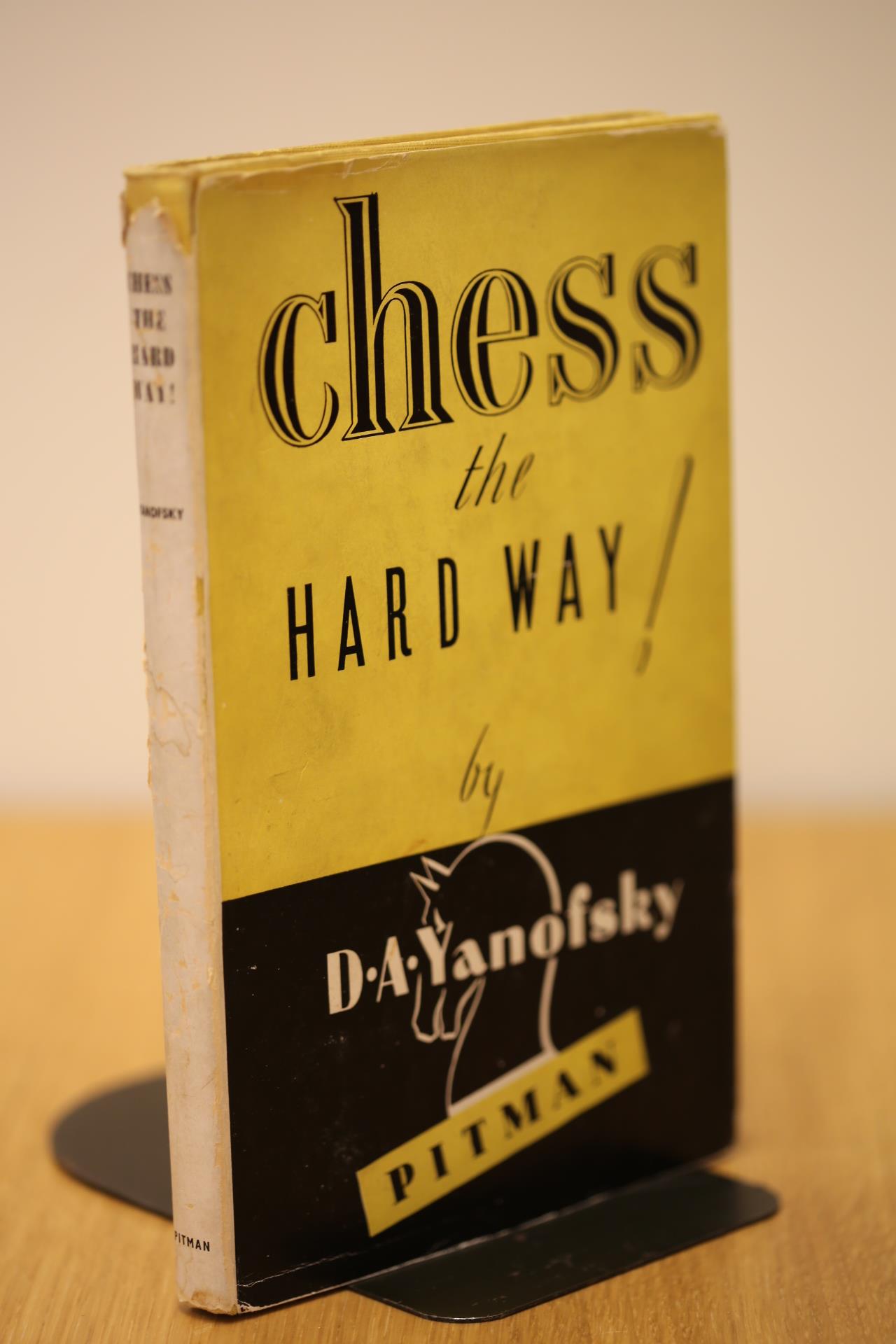
The second edition (1996) of Hooper & Whyld reduces DAFs entry to a mere five lines!
From The Encyclopedia of Chess (Batsford, 1977) by Harry Golombek (but written by Nathan Divinski):
A Canadian grandmaster, Yanofsky was born in Poland, came to Canada in 1926 and was raised in Winnipeg. He played 2nd board for Canada in the 1939 Olympiad and won his first (of eight) national titles in 1941, dethroning the eight-time champion Maurice Fox, Yanofsky had wins at Ventnor City 1942, The US Open 1942 and was =1st at Hastings 1953.
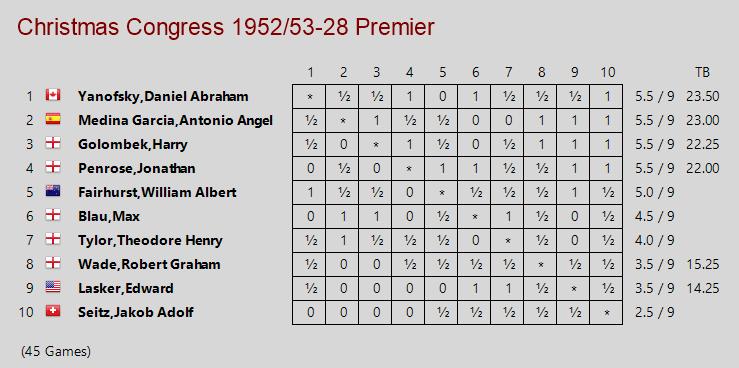
He won the British Championship in 1953, 1.5 points ahead of the field:
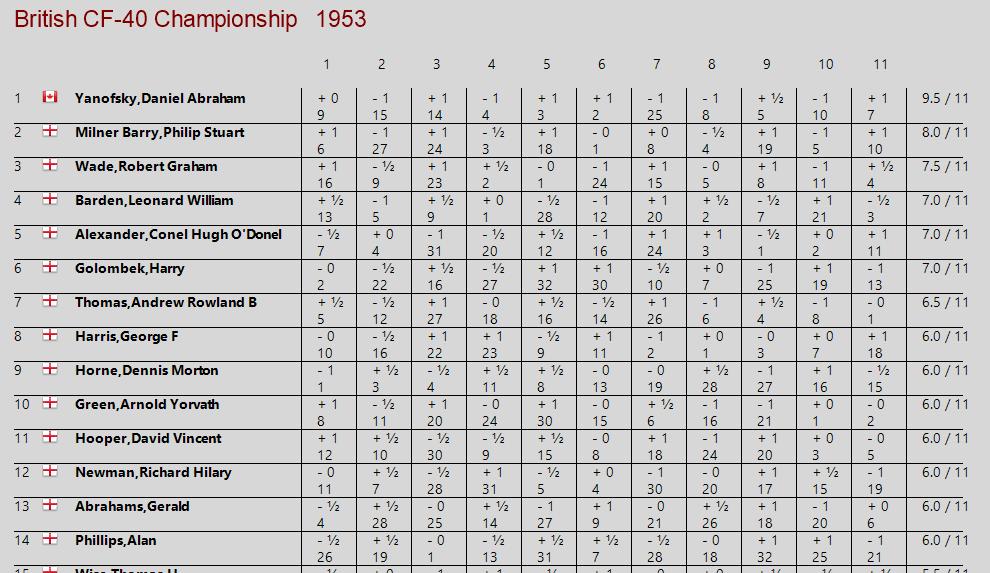
Yanofsky tied for 4th in the 1957 Dallas tournament and became a grandmaster in 1964.
At Groningen 1946 Yanofsky beat Botvinnik in their individual game. He has led many of the Canadian Olympiad teams.
Yanofsky is a lawyer with post-graduate studies at Oxford. He edited Canadian Chess Chat for several years and is active in civil politics.
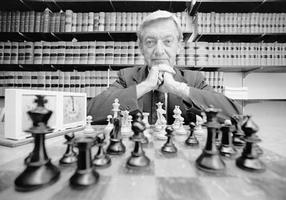
He is an expert on the Ruy Lopez and the French Defence, though his strongest point is his endgame play.
From Chess Facts and Fables, Edward Winter, McFarland Publishing, 2006, page 91:
Yanofsky’s Prize
From page 39 of Chess the Hard Way! by D.A.Yanofsky (London, 1953), comes this passage regarding the 1939 Olympiad in Buenos Aires:
“By winning the next two games I scored 9.5 points out of a possible 10 and was awarded a silver cigarette holder inscribed : “Mejor Jugador del Torneo” (best player of the tournament)”
Times have certainly changed, as it is hard to imagine that organisers today would offer a 14-year old boy anything smacking of smoking. (3003).
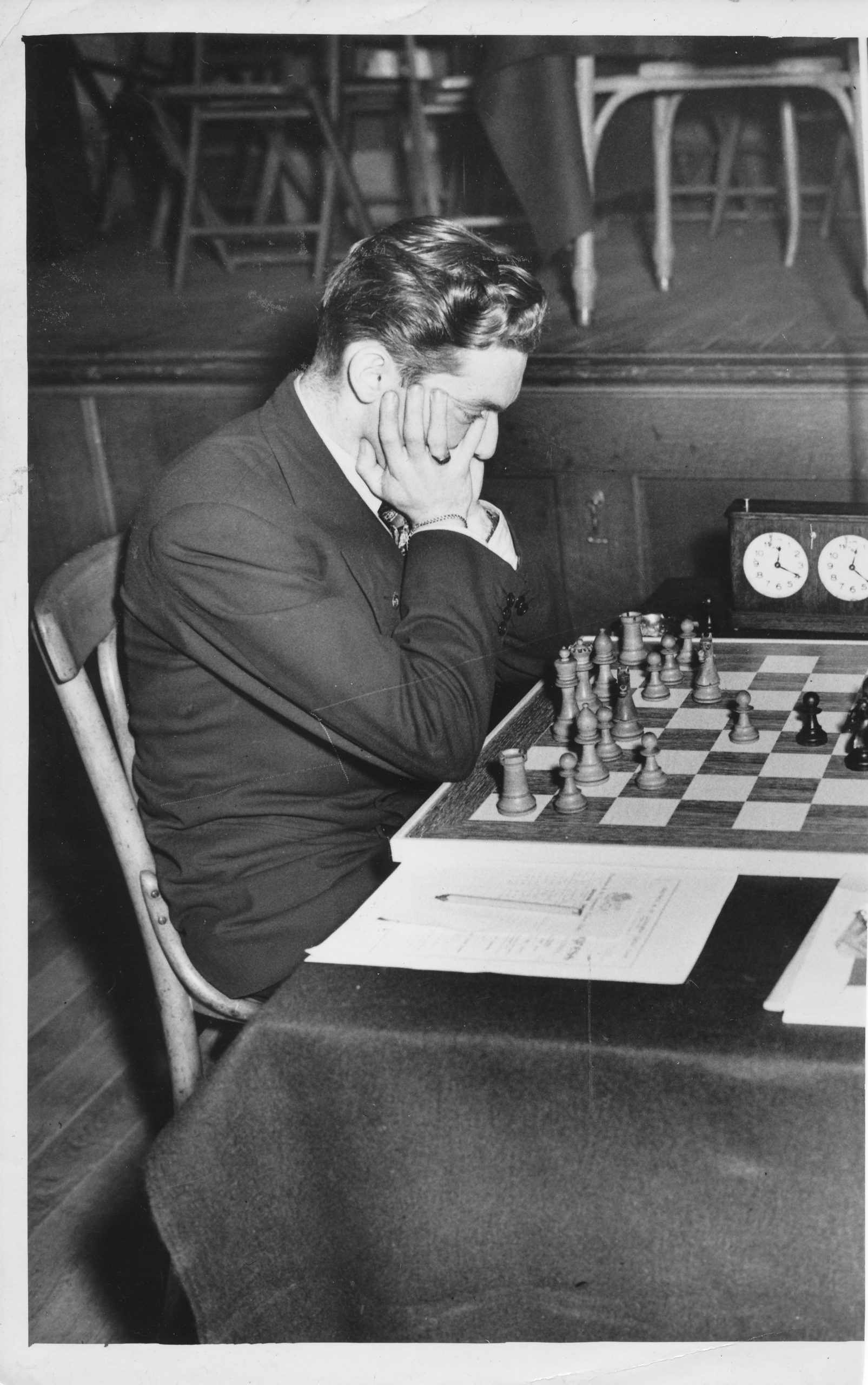
From British Chess Magazine, Volume CXXIX (120, 2000), Number 4 (March), pp. 223 (presumably by) John Saunders we have this obituary:
DANIEL ABRAHAM YANOFSKY
Obituary of “Abe” Yanofsky (26 iii 1925 – 5 iii 2000)
ABE YANOFSKY has died in Winnipeg after a long illness. Born in Poland, he emigrated to Canada with his family when eight months old. Learning the moves at eight, Yanofsky lost his first three games to his father but next day scored his first chess victory. He was already an acknowledged chess prodigy at 11, giving simultaneous displays and winning the championship of Manitoba at the age of 12. His big break came at the age of 14 when he was selected to play for Canada at the 1939 Buenos Aires Olympiad, achieving an 85% score, including a famous win over Dulanto which moved world champion Alekhine to watch all his remaining games in the tournament.
In 1941 Yanofsky won the first of eight Canadian Championships.
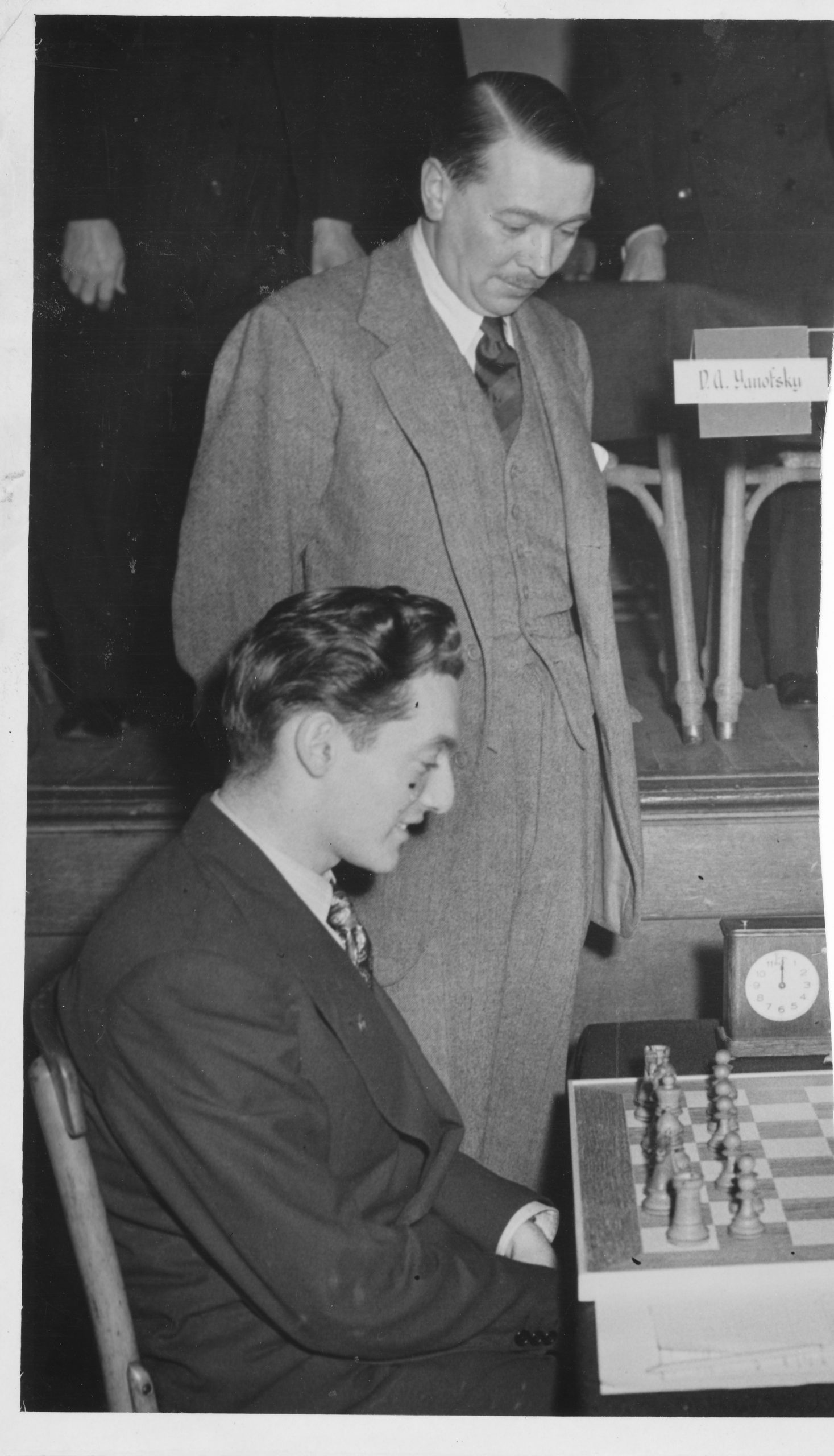
After war service in the navy, he played in a number of tournaments in Europe, defeating Botvinnik in a game at Groningen 1946.
Later that year he finished second to Najdorf in Barcelona, and then fourth at Hastings L94617. Other continental tournaments followed, including the Saltsjöbaden Interzonal of 1948. He returned to Canada where he was an outstanding law student, returning to Europe in 1951 to embark on a post-graduate law course at University College, Oxford, the funding being subsequently supplemented by his winning a $1,000 scholarship for being the most outstanding Canadian law student of 1952.
Yanofsky finished second at the I951/2 Hastings Premier, and took part many other UK competitions, crowning his UK-based period by winning the 1953 British Championship at Hastings: he scored a (then) record 9.5/11 despite a first round loss to DM Horne. In 1953 he also published an account of his chess adventures entitled Chess The Hard Way!
He returned to Canada to establish a successful career as a lawyer and politician in Winnipeg, though finding time to play in national championships and 11 Olympiads between 1939 and 1980. He edited Canadian Chess Chat for a number of years.
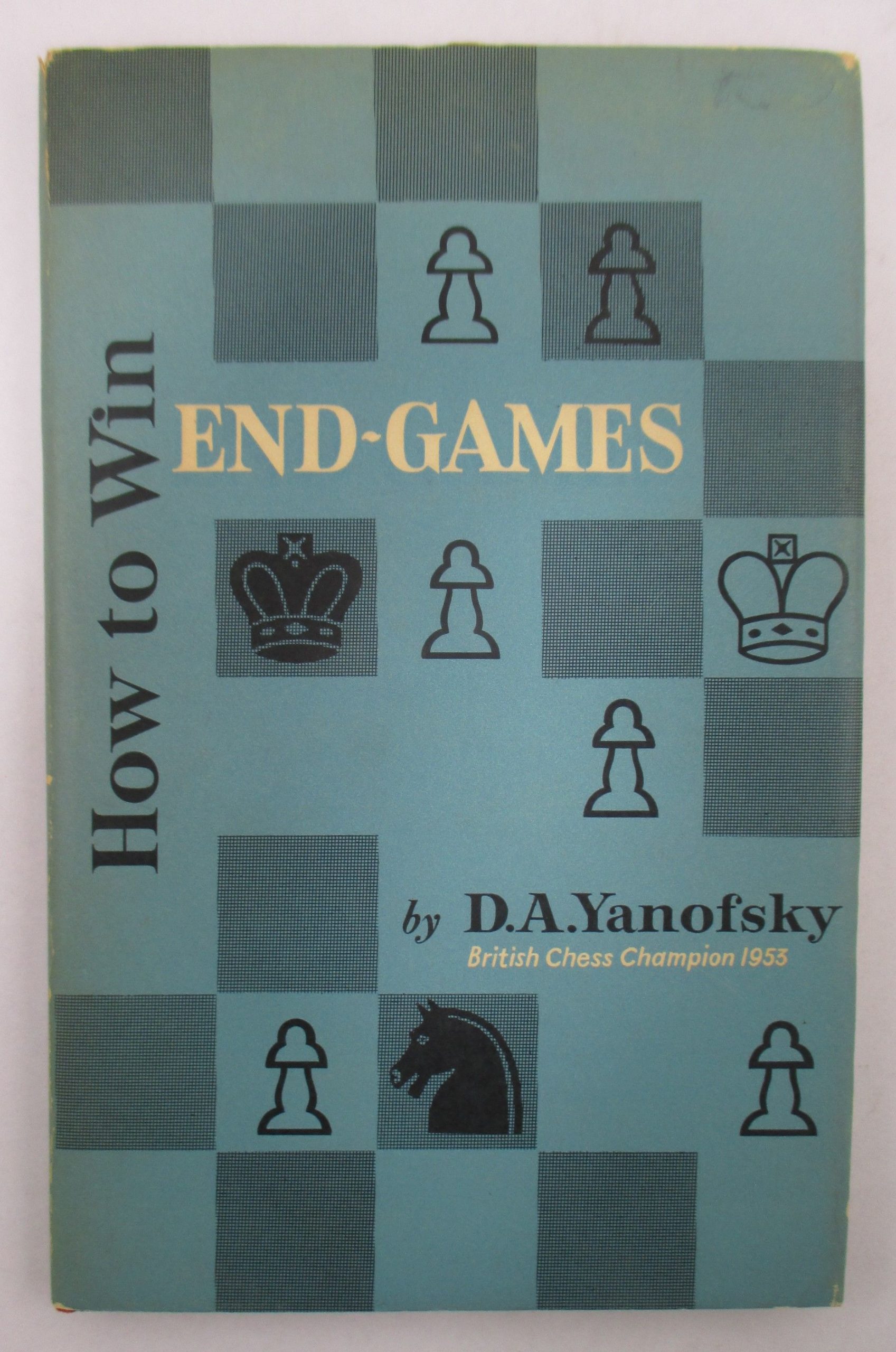
He became the British Commonwealth’s first FIDE grandmaster in 1964 (ed: although some might claim that Jacques Mieses was the first)
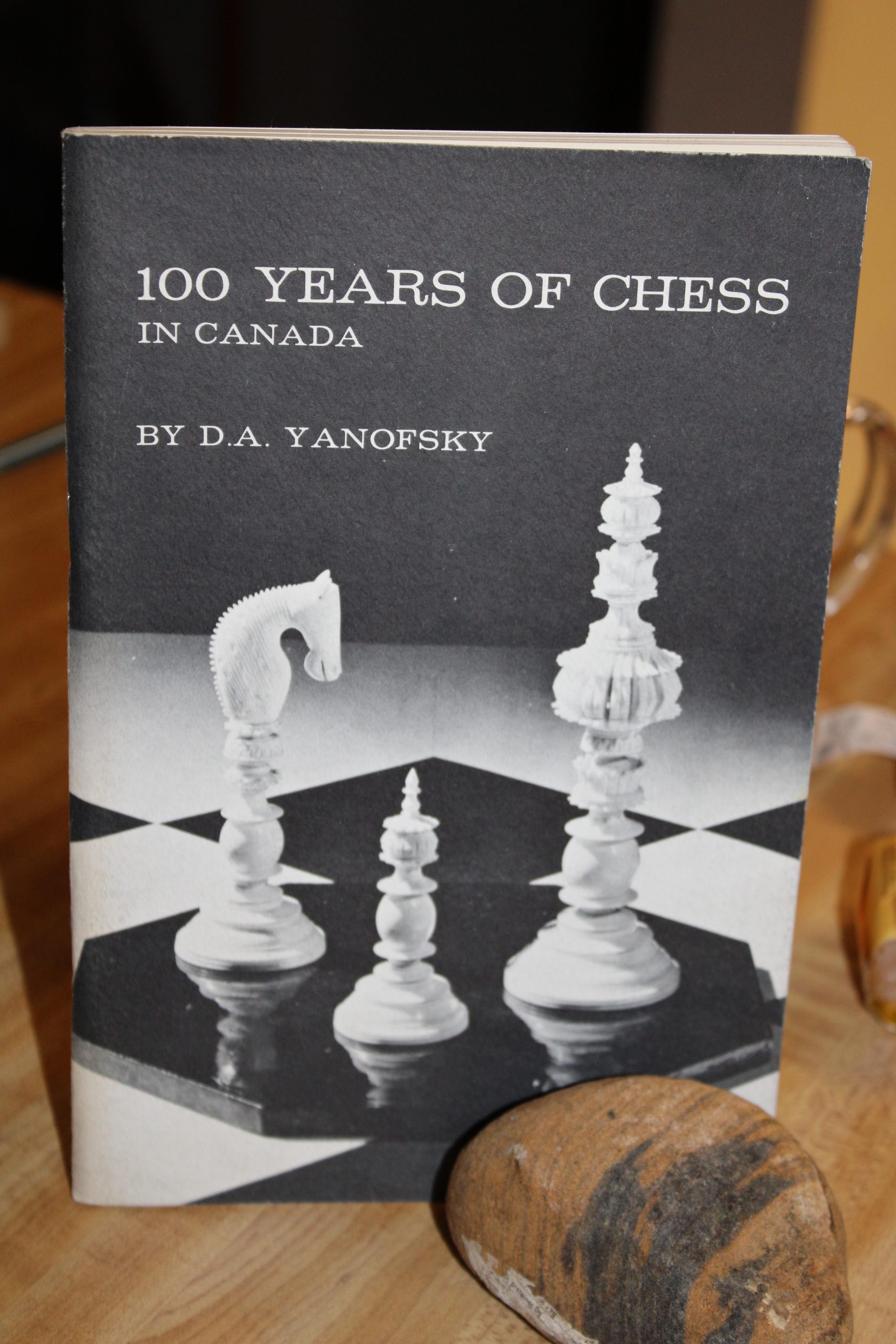
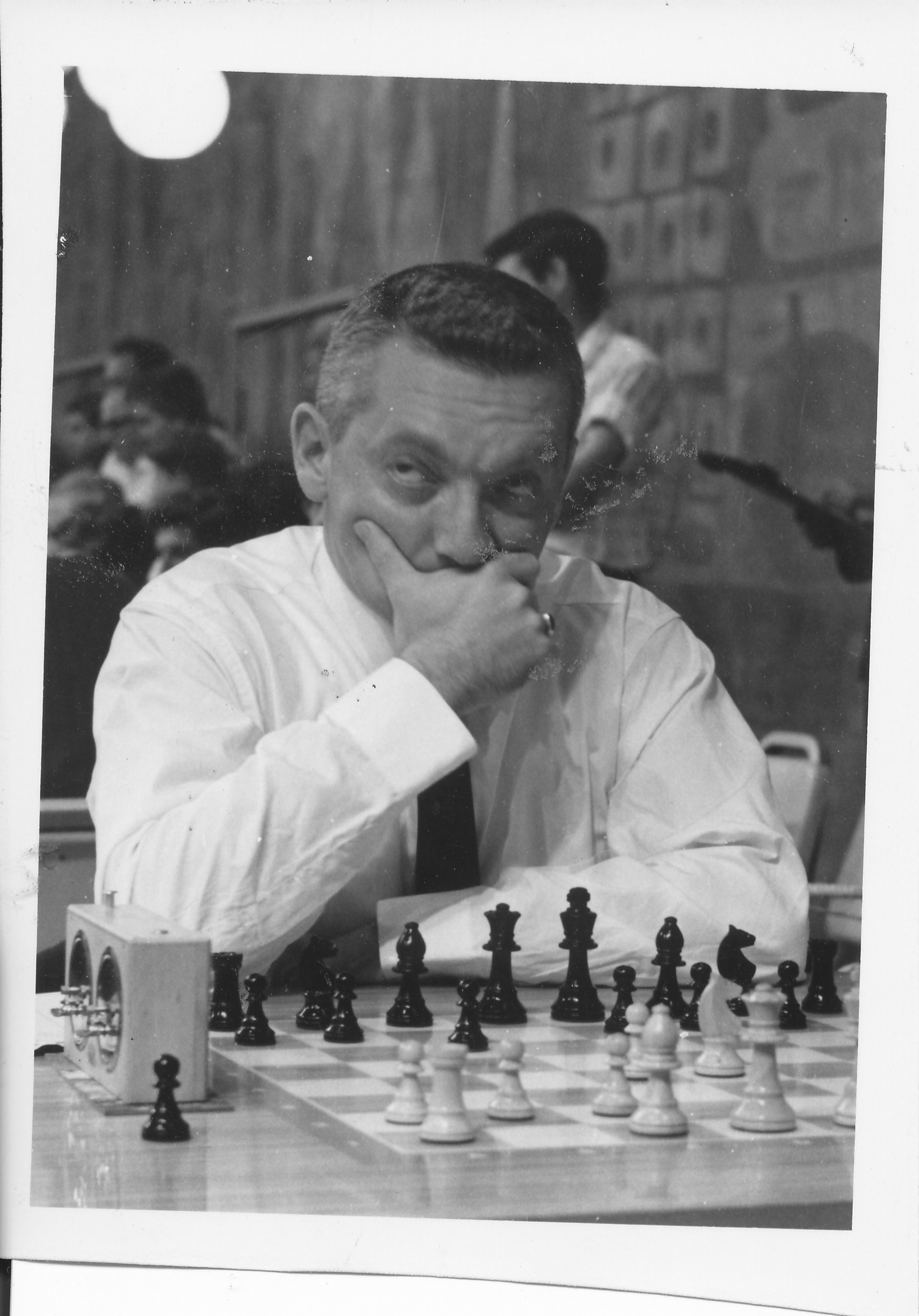
Leonard Barden reveals:
We lived in the same house in Oxford for a year, but never played or analysed together during all that time, as Dan’s focus was entirely on his academic work and his then pregnant wife, Hilda.
On March 26th, 2020 Chessbase published this article by Max Berchtenbreiter
Here is his Wikipedia entry.
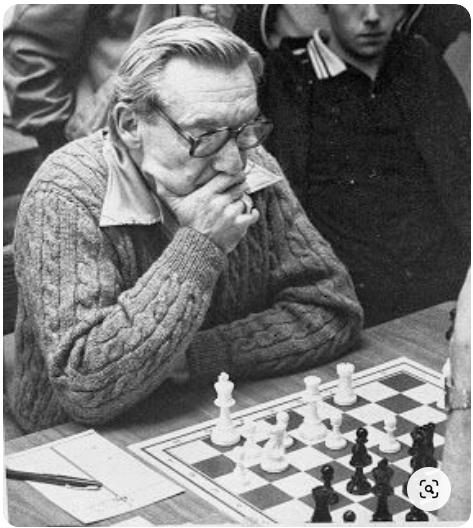
Here is a bullet pointed list of achievements compiled by David Cohen
A similar listing to the above from the Chess Federation of Canada web site
DAYs chessgames.com listing


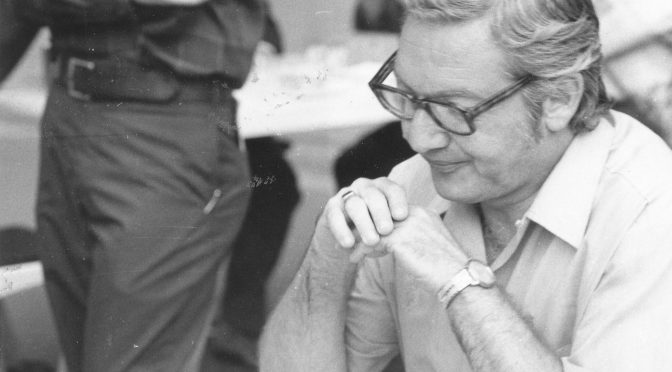
I have been researching Canadian chess players recently, so was delighted to come across this perspective on Yanofsky from across the pond. Hearty congratulations to BCN for this wonderful tribute!
Many thanks for your kind comments Desmond!
Dr. John Upham, British Chess News